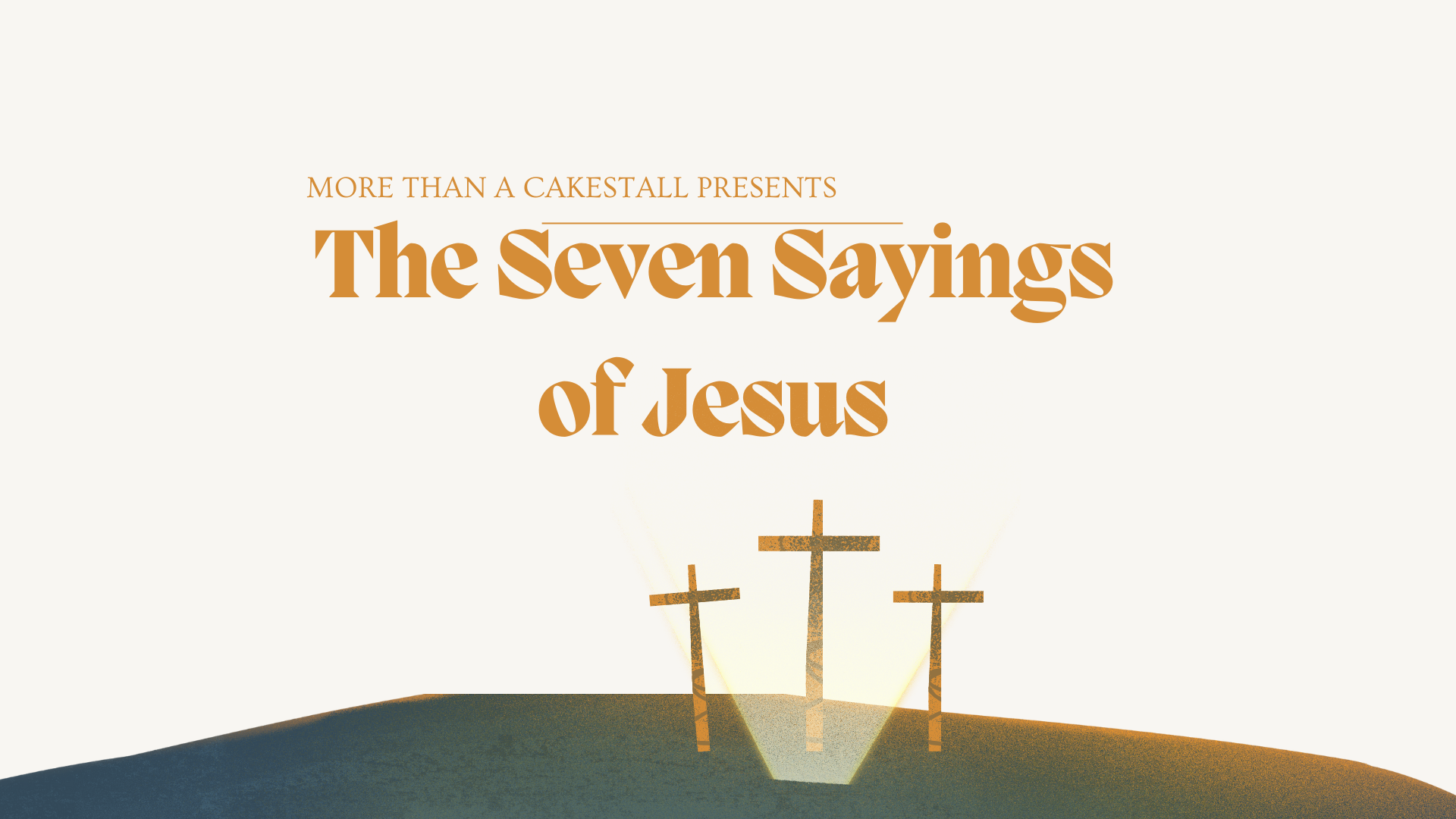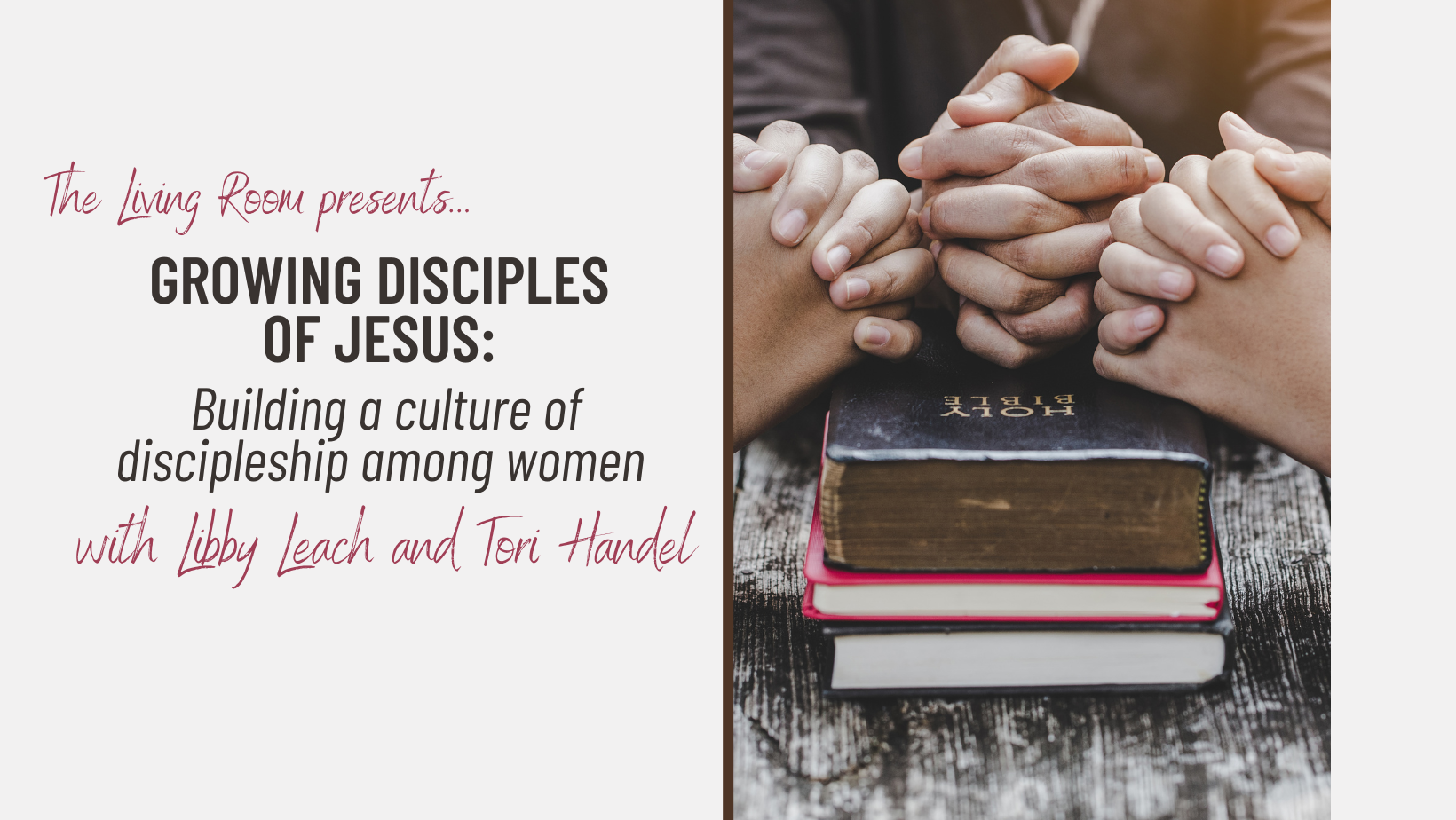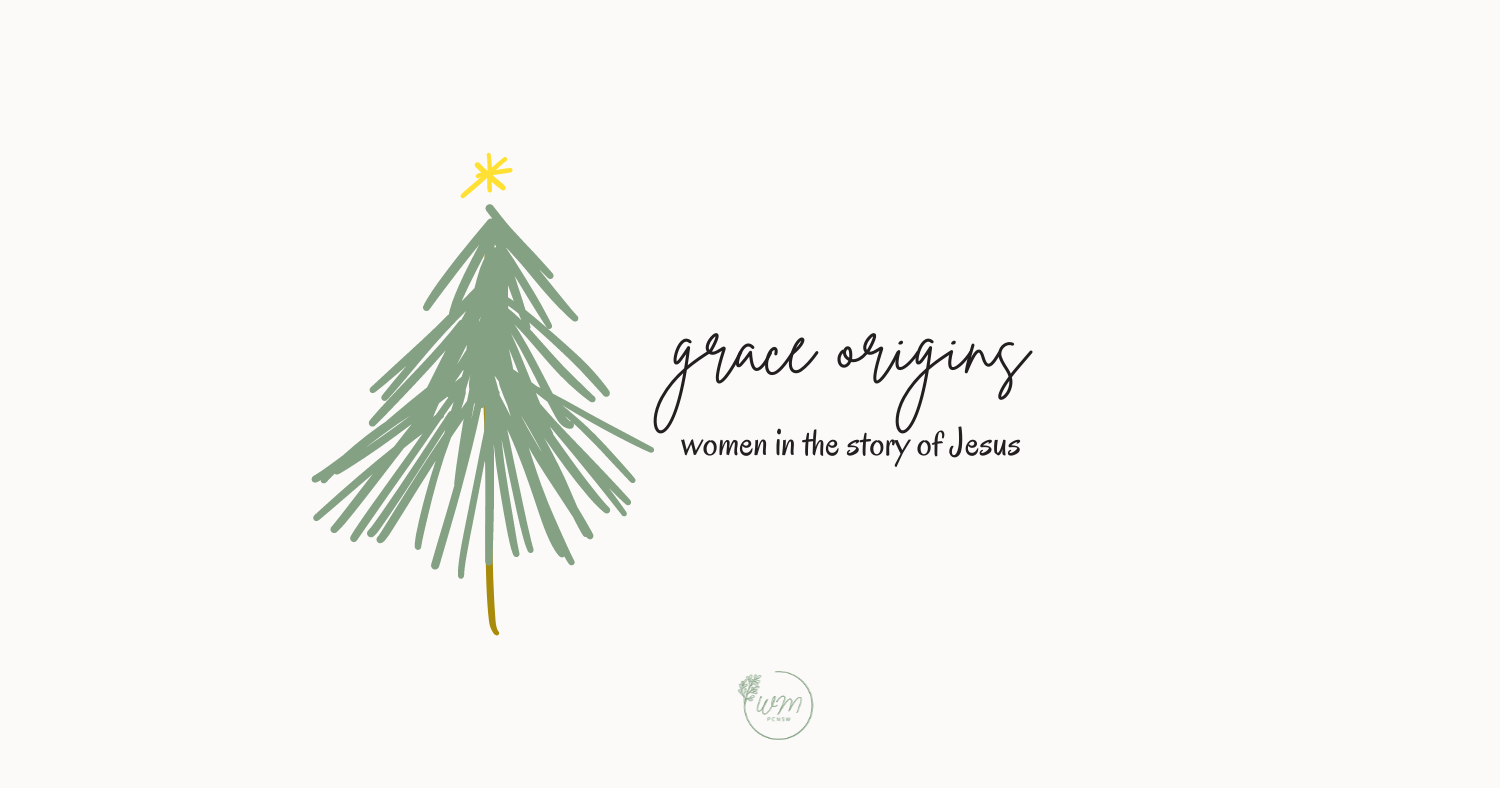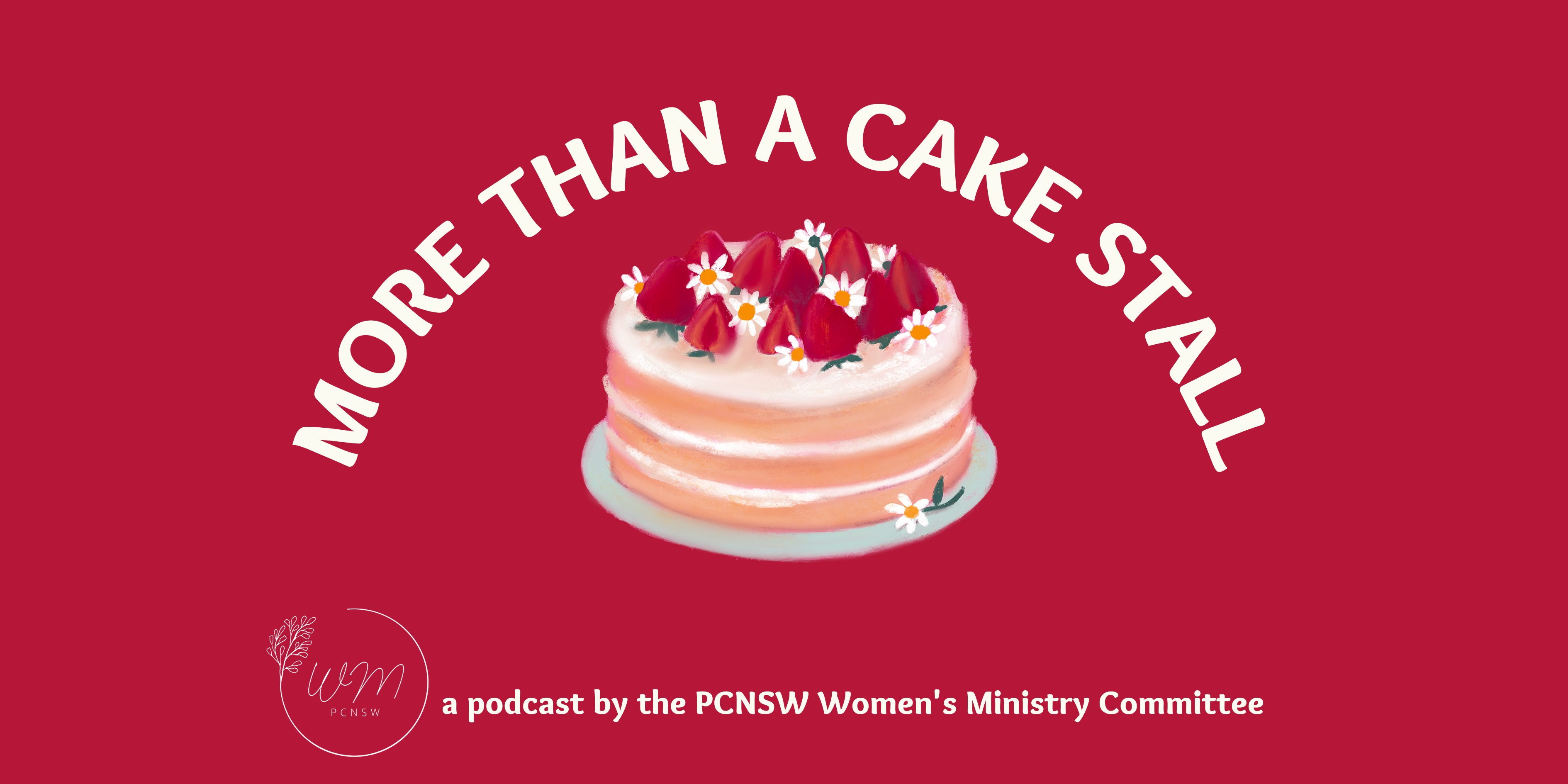
Over the Christmas break, I was completely consumed by family. A pause from work and other ministries and responsibilities meant that I had the ability to give my full attention to my three kids, who entirely delighted in long hours spent at the swimming pool, watching movies on the couch and re-organising their bedrooms.
It was lovely, and several times over the month of rest sat back and thought to myself “this is what life is about.”
And then I attended the Priscilla and Aquilla Conference on Monday and was gently rebuked in the plenary sessions to consider if this “overly romanticised, aspirational vision of family life, which is beautiful, spiritual and all-encompassing” is even true.
Continuing the Work: A New Chapter for the Women’s Ministry Facilitator

Late last year we announced that the lovely Anna Moss, our inaugural Women’s Ministry Facilitator, had decided it was time to focus more fully on her work with the Family Systems Institute. We felt it appropriate to acknowledge and celebrate Anna and her ministry before announcing what’s next.
It’s a little strange to introduce myself in this space – and even stranger to do so in the third person. But as we look ahead to what’s next for the Women’s Ministry Facilitator, it felt more helpful to reflect openly on the transition and the season ahead.
Thank you, Anna.
Sylvia Siu
After 7 years serving the Presbyterian Church of NSW as our inaugral Women's Ministry Facilitator, Anna Moss has decided it's time to move on to other things. We sat down with her and asked her to reflect on her time serving the denomination, and what's coming next.

When most people think of the PCNSW Women’s Ministry Committee (WMC), they think of the ways we encourage, resource and support women in our churches. And while that’s certainly part of our work, it’s not the whole picture.
Because we are an (GANSW) Assembly Committee, another crucial part of what we do is engage with the Assembly and other denominational committees. All of this work is to ensure the flourishing of all categories of women in the PCNSW - including congregation members, women employed in ministry and ministry wives.

A prayer for this mother's day.

I lost my mother when I was 20, and I know Mother's Day is a sensitive time for many people, often associated with relationship breakdown. We need to be sensitive, but God loves us to celebrate mothers, and there's much we can learn from mothers and grandmothers in the Bible.

Over the years, the Women’s Ministry Taskforce and now the Women’s Ministry Committee have understood the importance of supporting ministry wives, as a key part of the broader work of sustainable and healthy ministry practices within the PCNSW. Ministry wives are vital and necessary allies in the ministry life of the churches their husbands lead. Resourcing and pastorally caring for ministry wives is not only a strategic practice, but arguably an area of responsibility which the PCNSW could and should embrace.

Over the last 12 months, we have been busily working on a establish a grant to support PCNSW churches to employ women in gospel ministry.
The Women's Ministry Committee keeps coming across two contradicting, yet related obstacles preventing the employment of women in gospel ministry in the PCNSW.

I’m often asked why I do this work: promoting healthy complementarianism and the engagement of women in the Church. Many of my Christian friends think it would be better to focus on evangelism and discipleship. My non-Christian friends think I’m mad to simply advocate for engagement – while willingly abdicating equality with my brothers in title, status and power.
But we do this work because of Jesus. Because Jesus told a better story.

One of the things I contemplate at times is: Where will God cause me to serve when I retire? What will this next phase of life’s journey, if I am blessed to experience it, look like, feel like and how will it grow me?
Titus chapter two provides a mini job description for older women. I find verses three to five a challenge to our cultures’ trend to viewing retirement as being a reward and time for self only. I am inspired to consider what “being reverent” might look for me. I am cautioned about my behaviour. I am challenged to consider what “to teach what is good” looks like for my context. And that to not “malign” the word of God is so valuable in our witness to others.

Well, that wasn’t how we expected things to turn out!
In July this year, ministers and elders from every Presbyterian Church in NSW came together for General Assembly. There were many items on the agenda up for discussion (it was a week long meeting!) including deliverances by the Women’s Ministry Committee, but the big ticket item was the discussion on excluding women from the eldership (a deliverance brought forward by the Special Committee on Elders and Deacons - SCED).
On Tuesday morning, the first day of Assembly, we were prepared to hear a report from the Procurator (the PCNSW’s barrister) regarding his opinion on the legal standing of Overture (i) (regarding women elders). But instead, Rev John Irvin, the Clerk of the Assembly, addressed the Assembly.

So, what happened after Union?
At the PTC Melbourne Minister’s Conference of 2004, Rev Bob Thomas explained that the crisis that faced the Presbyterian Church after Union was two fold: firstly, it’s continued existence, and secondly, what that existence would look like.
2023 Assembly - Better Engagement of Women in the Courts of the Church
Stephen Taylor
Every July the NSW General Assembly meets and reviews what has been done in the past year and discusses issues that affect our future. This year a lot of those issues affect the engagement of women. The big-ticket item is whether to continue to allow women to be Elders within the NSW Church...

As the GANSW returns again to debate the inclusion of women in the eldership, we turn our eyes back – almost 80 years – to when this discussion first began.
As with most significant cultural changes in the 20th century, the debate began in response to the upheaval and changes triggered by the First and Second World Wars. As large numbers of men left their families, workplaces and churches to serve in the war, women stood up to fill in the gaps. Presbyterian Churches began to face the question of who would serve the sacraments and fill their pulpits. In some cases, Presbyterian Churches filled these openings with Deaconesses and missionaries – women trained and commissioned to serve in their communities. When the men returned from war, they found that the world had moved forward without them. In every sphere of life: family, workplace and church, communities had to grapple with the altered state of affairs. For the Church, it meant wrestling with the question of women in formal offices. The women had proved themselves competent, but did that mean they should do the work? Should the Church allow women into the eldership and ordained ministry? By 1948 – only 3 years after the war ended - the GANSW debated (and rejected) the proposal to allow women into the ministry and eldership.
The Lightbulb Moment
Jenny Allen
One of my favourite times in my Ladies Bible Study is when we have immersed ourselves in and wrestled with a Bible passage and come out with a lightbulb moment where understanding dawns, a truth hits home or connection is made for the first time; ‘How have I been a Christian for all this time and yet I didn’t understand that! or ‘that’s the first time I've understood that’, and “Isn’t God amazing!”

We all know the story of Sarah, the barren wife of Abraham, who at ripe old age of 90 gave birth to a son called Issac. Isaac, with his wife Rebekah, fathered Esau and Jacob. Jacob later became known as Israel, and fathered 12 sons, the 12 tribes of Israel.
But Abraham had other sons – his first son was born to Hagar, Sarah’s Egyptian slave girl. It’s safe to assume that Hagar had no choice in the matter. She did not choose to be Sarah’s slave girl, nor did she choose to enter Abraham’s tent and conceive his child. After Hagar conceived, Sarah felt that Hagar was being contemptuous, and so she dealt with her servant harshly. Hurt, exhausted, oppressed and pregnant, Hagar ran away. She fled into the wilderness and was met with an Angel of the Lord, at a spring of water.

Into your hands I commit my spirit
I’ve had such a busy lead up to Easter and its actually been really lovely to spend some time pondering these final words of Jesus on the cross..his final words ever ,before he died and then was resurrected.
To be honest I’d never really thought to ponder them much…
Jesus’ last seven words are an exact match of some words that King David speaks in Psalm 31:5.

John 19:30 When he had received the drink, Jesus said, “It is finished.”
These are Jesus’ final words in John’s gospel. He is ready to die as the final sacrifice, the lamb of God, who takes away the sins of the world.
The first sacrifice happened in the Garden of Eden. The Lord, the Creator God, had given Adam and Eve clear instructions about how to honour Him. “Eat of all the fruit in the garden, except the tree of knowledge of good and evil, for when you eat from it, you will surely die.” (Genesis 2:16) Adam and Eve chose death. They chose to live their own way. They chose sin. They chose to reject God.
The Fifth Saying
Jenny Allen
As a nurse, a midwife, a mother and a grandmother one of my passions is babies! The story of the birth of Jesus never gets old and my heart resonates with Mary, the young mother who stored up in her heart the unusual signs and messages around the birth of her son. My heart also resonates with Mary in the Easter narrative. I have a son who is about the age that Jesus was when he died. My son is wonderful but he isn’t perfect. I can only imagine how Mary felt.

Matthew 27:46 About three in the afternoon Jesus cried out in a loud voice, “Eli, Eli,[c] lema sabachthani?”(which means “My God, my God, why have you forsaken me?”)
It’s the most gut wrenching cry in the Bible. Jesus, enduring the suffering of the cross, cries out to his Father in distress.

John 19:26 – Woman, behold your son
In the Gospel of John, we have a unique record of a phrase that Jesus says to his mother as she stands at the foot of the cross along with some others there with her. I will now read from John 19:25-27:
25 Near the cross of Jesus stood his mother, his mother’s sister, Mary the wife of Clopas, and Mary Magdalene. 26 When Jesus saw his mother there, and the disciple whom he loved standing nearby, he said to her, “Woman,[b] here is your son,” 27 and to the disciple, “Here is your mother.” From that time on, this disciple took her into his home.
In this moment Jesus is nailed to the cross. We know from the gospel of Mark that Jesus was crucified and alive on the cross from the 3rd to the 9th hour. During this time his clothes are being gambled for by the soldiers, he is being ridiculed and mocked, and he is slowly dying.

Luke 23:43 “Truly, I say to you, today you will be with me in paradise.”
As he hanged on the cross, the Jewish rulers continued to mock Jesus. “If he really is the Christ, the Chosen One, let Him save Himself.” The Roman soldiers continued the mocking, placing an inscription over his head that declared, “This is the King of the Jews.” They offered him sour wine which would have numbed his pain, but increased his thirst and emphasized his frailty. The men who were crucified beside him beside him joined the fray. They mocked him too, one of them jeering, “Are you not the Christ? Save yourself, and us!”

Luke 23:34 – Jesus said, “Father, forgive them, because they do not know what they are doing.”
Just hours earlier, he was sitting at the dinner table, breaking bread with his disciples, his closest friends. He had washed their feet – a shameful task, reserved for servants – but Jesus did it, gladly. He ate with them, delighted in their company, and continued to teach them. And then just as he expected, one of his disciples betrayed him. Judas handed Jesus over to the angry crowd of men, which included the chief priest. They took Jesus into the home of the high priests, and the men who were guarding him began mocking him, and beating him.
Biblical Complementarianism - a recap of the Priscilla & Aquilla Conference (part 1)
Sylvia Siu
Each morning, my kind mother-in-law sends me a text with a Bible verse randomly aggregated from an app on her phone. On Monday 6th February, as I took my seat at the Priscilla and Aquilla Conference at Moore College, I received a text that read “I delight to do your will, my God. Yes, your law is within my heart.” (Psalm 40:8). It was an appropriate text for me - a reluctant complementarian - to receive at a conference that 'focuses on the application end of complementarianism". It has been slow work conforming my culturally-conditioned desires and thinking to God’s Word, and the reluctance sometimes gets in the way of living out delightful obedience.

We read, in Luke’s gospel, that when the baby Jesus was brought to the Jerusalem temple to be consecrated, or set apart, for the Lord, in line with the Old Testament law, He was met by two elderly people who recognise Him as the long awaited Messiah: Simeon and Anna.
Anna was the daughter of Penuel, of the tribe of Asher. We’ll circle back to this point soon – but it’s important to note that Biblical references to genealogy and geography are rarely without cause.
The Living Room: Growing Disciples of Jesus
Anna Moss
On Tuesday 22nd November we held our final session of The Living Room for 2022.
Libby Leach and Tori Handel from Harbourside Presbyterian graciously shared their thinking about “Growing Disciples of Jesus”.

It is the most famous teen pregnancy in the history of humanity.
The quiet life of a village girl is interrupted when an unexpected visitor – an angel, in fact. Not the infantile, adorable, red cheeked cherubs that occupy the collective imagination, but a terrifying, holy angel who must constantly remind those he visits, “do not be afraid!”

In Luke’s gospel, Jesus’ origin story begins with an angel’s declaration – to an old man, a priest in the Temple. The angel promised that Zechariah’s wife, Elizabeth, would soon be pregnant with a son, who would be their joy and delight and “make ready a people prepared for the Lord.” And although Zechariah was a righteous man, he doubted the promise (understandable, when you consider that he and his wife were past their childbearing years).

Earlier this year, the PCNSW Elders and Deacons Committee distributed a discussion paper for the Presbyterian Church in NSW & ACT, entitled Healthy Complimentarianism, which offers a range of ideas about how we might better live out God’s good design for men and women in our churches in biblically faithful, and therefore, healthy ways...

Unhurrying Your Life
A Book Review by Sarah Bell
“How are you going? How is work? How is the family?”
If you are familiar with these small-talk questions and your usual response is anything along the lines of the following, then this book is definitely for you.

Our whole church recently worked through the devotion book “Growing in Prayer: Learning to pray with dependence and delight” by Stephen Shead. It is a small book with 28 Biblical reflections and four small groups. We worked through the reflections individually at our own pace andworked through the studies in small groups...

Resolved by the General Assembly of NSW on Wednesday, 13th July, 2022
That the Assembly...

Imagine for a moment a church community that is real about serving each other. That is committed to each other in the muck and mess of life. Imagine for a moment if you can, the leadership of the church walking with and caring for the church community in deep, practical, costly ways for the sake of the bride of Christ. At the heart of this church community, is a group of servant hearted, godly, men and women loving the church deeply as they serve. Who are these godly saints? They are the unsungheroes of the church. The deacons.

As you may recall, in 2021, the PCNSW Women’s Ministry Committee (WMC) distributed a paper and accompanying survey to PCNSW Presbyteries, Sessions and Churches titled “The Engagement of Women in Decision Making Processes”. We received 120 responses- very broad and varying in nature.
Some churches provided multiple responses from individual members, whereas some presbyteries provided a collective response, or no response at all. We were surprised to hear from a significant number of women who contacted us, off the record, disappointed that their church leadership would not engage in the discussion with them, or allow for the paper to be distributed in their church...

Every July the Women’s Ministry Committee makes a presentation to the General Assembly. For the first few years of our existence our emphasis in this report was how best to employ and support our Women’s Ministry Facilitators (Anna Moss & Sylvia Siu). But last year we distributed a paper throughout the state, “Co-Heirs and Co-Workers: The Engagement of Women in Decision Making Forums of the PCNSW” and this year we are planning to discuss the feedback we received from that report with the Assembly.

I've been thinking, recently, about the tenor in our voices: the wide eyed curiosity that comes in the voice of a child; the outrage in the voice of a teenager who is discovering injustice in the world; the passion and hope of a better tomorrow in the voice of a young woman; the fatigue and concerns that weary the young mum's voice; the sensibility and perspective that resonate in the middle-aged woman's voice; and all those different experiences and seasons meddled with hard won joy and wisdom in the voice of an elderly woman.
As I'm sure you're aware, the Women's Ministry Committee has been working with the PCNSW General Assembly to work out ways in which we can engage women's voices in decision making forums. And for me it has posed the important question: do I listen well to women's voices in the every day? Or do I dismiss them, as too immature' too old or too traditional...

In 1903 the NSW General Assembly of the Presbyterian Church resolved “to make investigation into the question of providing further facilities for women to engage in the work of the church, particularly in regard to the institution and training of deaconesses”.
In the years that followed, a spectacular ministry began. The Presbyterian Women’s Mission Association funded, trained and commissioned deaconesses, sending them out into the poorest Sydney communities, including Woollomoloo and Kings Cros . These weren’t easy times or quiet places. Much of this work began in the early years of WWI, and the deaconesses assisted families coping with their husbands/fathers away at war. It continued as the men returned from war, many of them with PTSD, their trauma impacting their families and communities. They served through the Spanish Flu and through the Great Depression, and continued their service – now multiplying in number – through the Second World War. Even through these difficult years, the ministry was supported – both financially and through prayer – by the newly formed Presbyterian Women’s Association (PWA)...

Her name isn’t even mentioned in the genealogy. Bathsheba is simply referred to as “the wife of Uriah.”
Perhaps because, as terrible as her story is, she’s not even the centre of her own story. Bathsheba’s experience exposes the wickedness of man and our need for a good king.

A Moabitess, in the genealogy of Jesus?
It should be unheard of.
The Moabites and Israelites were enemies - and distant cousins (tracing back to Abraham). The book of Numbers recounts their military and religious conflict (famously featuring a talking donkey), and the book of Judges recounts the cruel oppression the Israelites suffered under a Moabite king, who eventually came to a crude and comical demise...

We first meet Rahab in Joshua 2: Two spies enter Jericho in the cloak of darkness, but are soon found out. They come to the home of “a prostitute named Rahab”.
The king of Canaan sent word to Rahab, calling her to bring out the spies. She had to make a decision: would she hand them over? Or offer them protection?

He had just convinced his brothers to sell Joseph to Ishmaelite slave traders when Judah, son of Jacob, married a Canaanite woman.
Together, they had three songs. Their firstborn, Er, was married to a woman called Tamar. But Er died – the Bible tells us that he was “wicked in the sight of the Lord” – before he and Tamar could conceive a child. Without a child, Tamar would be destitute. She had left her own family to be married to Er, and had no means to provide for herself.
In order to continue the line of Er, and secure Tamar’s place in the family, Jacob’s second son, Onan, was instructed to act as a surrogate for his brother. But Onan was too selfish to provide an heir for his brother’s wife, and he was also put to death (by God) for his wickedness...


